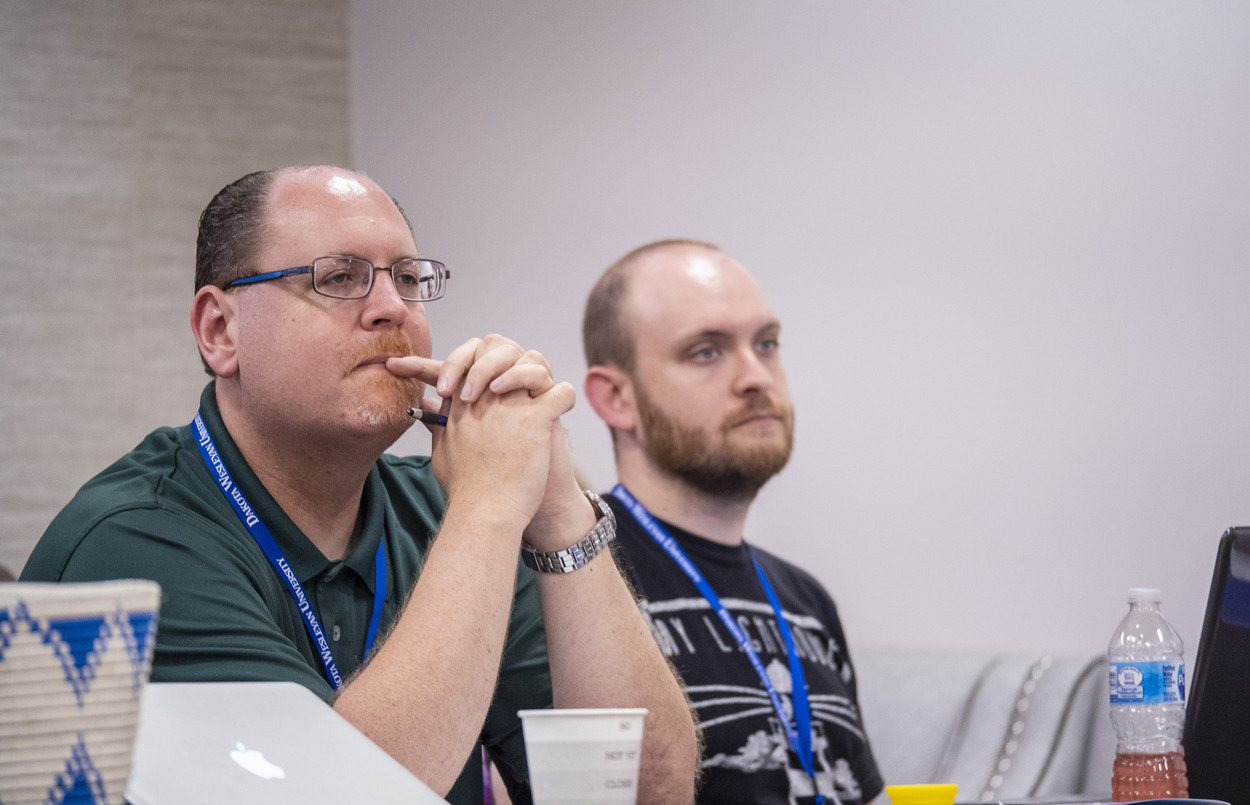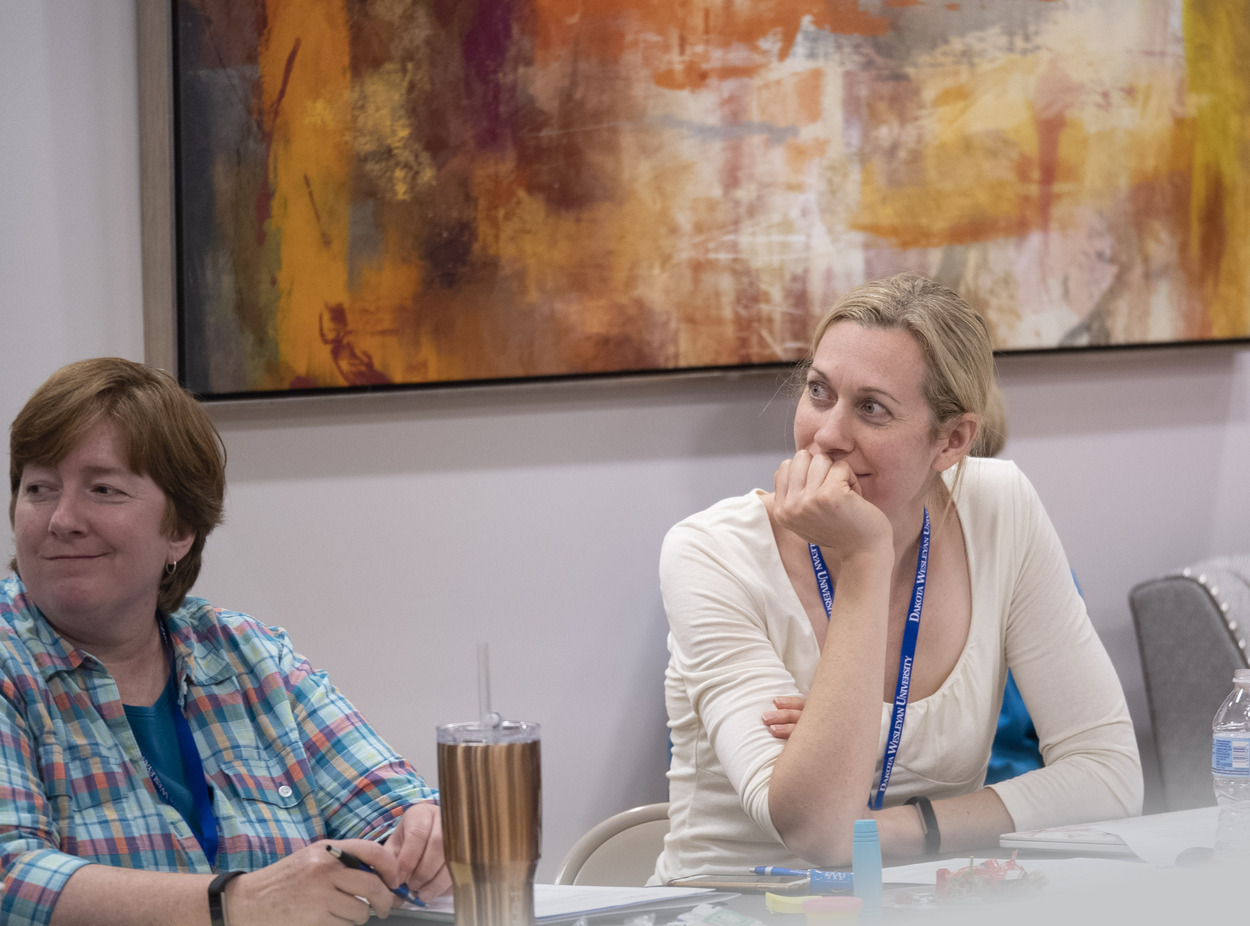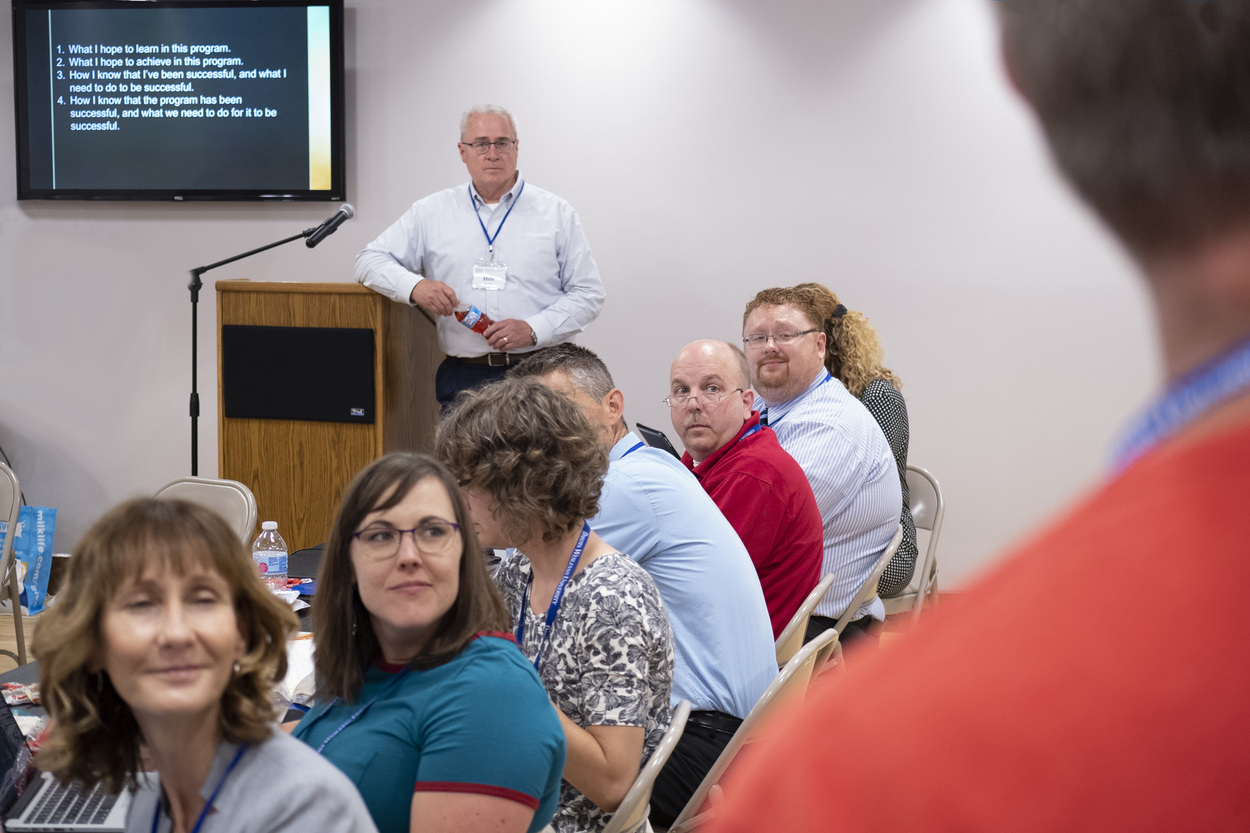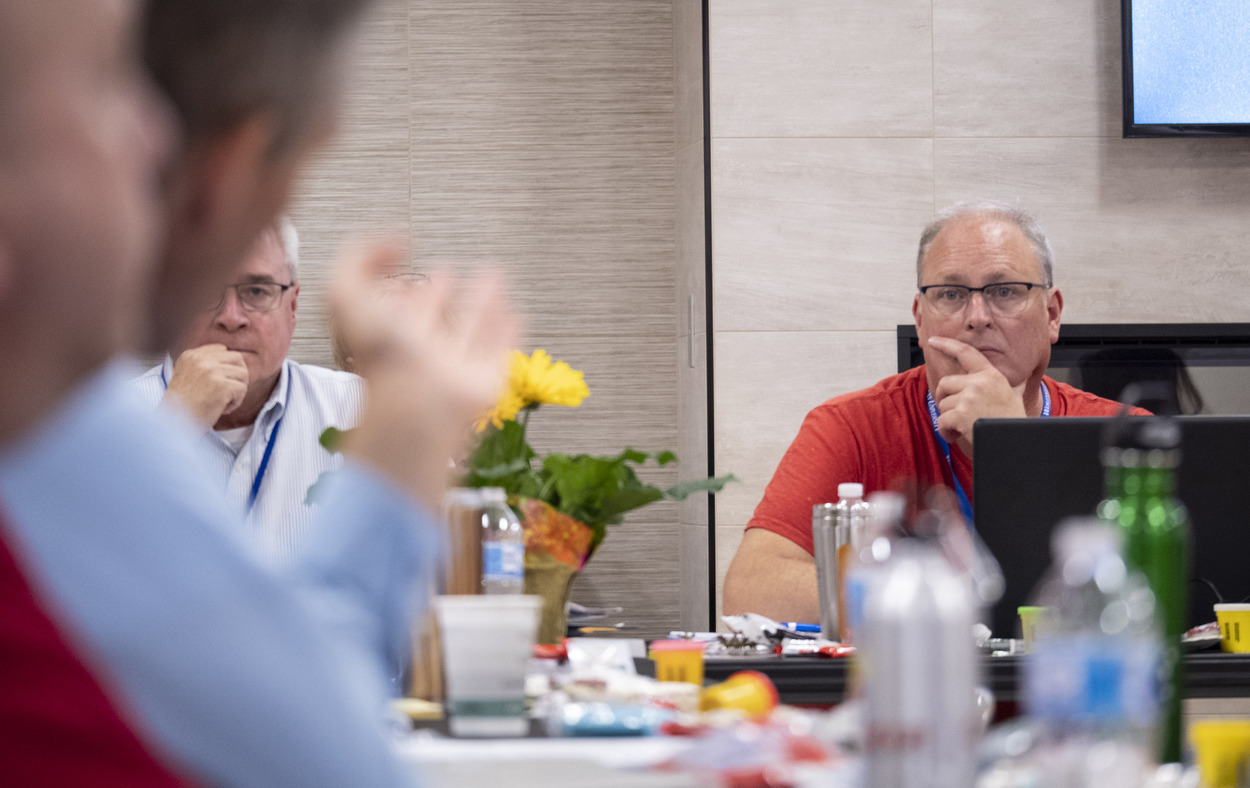
Clergy gain new stewardship, administrative skills through certificate program

Rev. Ryan Mutzenberger (left), listens to the presenters during the orientation, held in July, for the non-profit church leadership certificate graduate program. The program is a joint effort of the Lilly initiative and Dakota Wesleyan University. Photos by Dave Stucke, Dakotas Conference.
How can church leaders gain practical tips and knowledge to help churches grow and prosper? What if you had the chance to learn ways to lead your church to the next level? Rev. Ryan Mutzenberger, who serves as the senior pastor at Fargo First UMC, is finding answers to these questions in the non-profit church leadership certificate program at Dakota Wesleyan University (DWU).
“Pastors regularly talk about all the 'things they should have taught us in seminary.' This program does exactly that and more! The opportunity to share ideas, learn with other pastors currently serving in churches, and implement an applied project in your ministry setting right now, are some of the best gifts this program has given the church that I serve and me,” Mutzenberger said.
Ten Minnesota clergy and eight Dakotas clergy are participating in the program, which began in July. It was made possible through a $1 million Lilly grant that the Dakotas-Minnesota Area received in 2016; that funding is enabling both the Dakotas and Minnesota Conferences to invest in pastors by helping them develop stronger financial literacy skills, reduce or eliminate personal debt, and become equipped to foster a theology of generosity within their congregations. The certificate program will provide clergy with the business acumen required to meet the demands of a growing church, along with training in how to handle aspects of fundraising, organizational leadership, and human resources—skills that not commonly taught in seminary.

Rev. Brooke Heerwald Steiner (right) participates in the non-profit church leadership program.
Rev. Brooke Heerwald Steiner, the senior pastor at Exclesior United Methodist Church, is leading her church through a strategic planning process. The impetus for it came from Steiner’s participation in a non-profit church leadership certificate program.
“Continued learning is important to me,” said Steiner. “No one gets taught everything they will need for his or her career in school. You are always going to learn on the job, and the job of a pastor is always changing. This program is giving me a wider perspective and some best practices that I can build into my practice of ministry, so I have more time to do community outreach, and think about church in creative ways.”
Key learning to date
The program is a year-long experience that includes online learning as the primary teaching platform. Participants gather in-person three times over the course of that period, and they complete two applied learning projects that focus on and benefit the local churches they are serving.
The program has four modules: financial stewardship, stewarding human resources, stewarding vision, and stewarding the church. Participants recently completed the one on financial stewardship.

Rev. Jen Tyler, second from the lower left, listens to a report from one of her peers participating in the non-profit church leadership program.
“I especially appreciated learning more about capital campaigns and how to ask for large gifts (either for such a campaign, or for estate gifts and long-term planning),” said Rev. Jen Tyler, who serves Evergreen UMC in Wahpeton, North Dakota. “One of the most important things for me in continued learning is ensuring it is practical, and so far, everything has directly applied to the congregational setting in which I serve.”
Mutzenberger, points out that the classes are organized in such a way that the program aligns with the church year.
“We began this summer with a focus on financial stewardship and generosity,” he said. “This has allowed me to design and implement a stewardship campaign for Fargo First UMC focused on the amazing blessings God has provided each one of us. I've grown in the ways I teach stewardship and have received helpful resources to be able to tell the financial story of the church with analytical numbers, but also tell our story of how our tithes and offerings are making disciples for Jesus Christ for the transformation of the world in our community.”
Rev. Max Richter, who serves Champlin UMC in Minnesota, echoed that sentiment. He’s learned best practices about aspects of stewardship he’d never even considered—like having a policy for receiving non-monetary gifts to the church.
Part of his applied project involves taking a fresh look at Champlin UMC’s stewardship process and making it more of a celebration and less of a typical fundraising effort. Another aspect of his project is about streamlining the church’s supervision of staff.

Rev. Max Richter, right, listens during a session of the non-profit church leadership program.
“Looking at our stewardship with fresh eyes through the assignments and questions helped me have new insights right away,” he said.
Each participant has a coach who talks with him or her on a regular basis. For many, that’s among the most valuable parts of the program.
Coaching and peer-to-peer learning
“My coach helps me think through ideas, makes sure I’m applying them beyond theory and asks great questions to make sure I’m doing it in the best way possible,” said Tyler. “She also encourages me to try new things and not be afraid to fail. It’s been great to have someone like her invest in our congregation from a neutral perspective!”
Participants say just as valuable as the instruction and coaching is the peer-to-peer learning that’s taken place.
“I have thoroughly enjoyed the opportunity to gather with 18 of my colleagues from across the Dakotas and Minnesota Conferences!” said Mutzenberger. “The diversity of ministry experience has provided a wealth of real-world application to our studies. The encouragement from our four teacher coaches has been excellent, and I've appreciated their experiences from the worlds of academia and business.”
Clergy invited to apply
A second cohort will begin the non-profit church leadership certificate program next July, and clergy across the Dakotas-Minnesota Area are invited to apply. (Access application.)
When asked what current participants would tell other clergy about the program, Steiner said, “It’s a great investment in clergy, and I’m appreciative of that.”
“You have nothing to lose—and everything to gain!” Tyler said. “Ministry and the contexts in which we serve are always changing. This program will help you live into our commitment to be lifelong learners, and will do so in practical, helpful ways. Since this program is for clergy, it feels less like traditional academic learning, and more like an ongoing practicum we’ve all needed for some time (even if we don’t always realize it).”
Learn more! For more information about the certificate program or the Lilly grant, contact Diane Owen (507-244-0311), program director for the Lilly Grant Initiative.